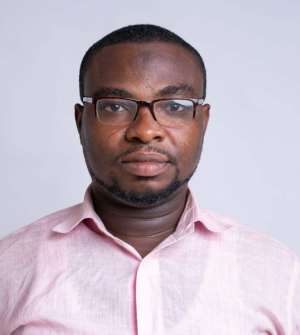 Tanko Abdulai Ibrahim
Tanko Abdulai IbrahimThere comes a time in the life of every nation when a reset becomes not just desirable, but absolutely necessary. For Ghana, that time is now.
Our country, once celebrated for its moral compass, communal values, and deep spiritual roots, now finds itself drowning in the consequences of unchecked corruption, institutionalized greed, and a crippling moral decay that stretches from the corridors of power to the street corners of our communities.
As we gradually approach 1st July, 2025 to observe the National Day of Prayer, this must not be another symbolic event that fades with the sunset. It must be a national wake-up call, a spiritual and moral reset, a moment when every Ghanaian takes a long, hard look in the mirror and asks: What have I done to build or break this nation?
The Moral Crisis We Cannot Ignore
Our problems are no longer hidden. We see them daily:
Leaders abusing public trust while citizens remain silent. Young people believing shortcuts and schemes are better than hard work. Parents bribing their way through school systems to get their children ahead. Civil servants demanding “something small” before doing what they are already paid to do. Religious institutions chasing wealth and popularity while neglecting their role as moral compasses.
This is not just a political or economic crisis. It is a spiritual and ethical emergency. And until we treat it as such, our progress will remain cosmetic, our democracy fragile, and our nation vulnerable.
Prayer is Not Passive; it is a Call to Action
This National Day of Prayer is not about theatrics or photo opportunities. It is a solemn moment to return to God’s principles, to rekindle the fear of God, and to rebuild the moral backbone of our nation.
In both Christianity and Islam, prayer is more than supplication, it is submission, self-examination, and transformation.
The Bible urges:
“If my people, who are called by my name, will humble themselves and pray… I will heal their land.” (2 Chronicles 7:14)
The Quran echoes this same charge in Surah Ar-Ra’d (13:11):
“Indeed, Allah will not change the condition of a people until they change what is in themselves.”
These verses in our holy books are powerful call to responsibility. Our collective healing depends on the individual decisions we make daily, to choose right over wrong, honesty over deception, and service over selfishness. Whether we kneel in a church, raise our hands in a mosque, or pray in the quiet of our hearts, we must follow prayer with repentance, integrity, and action. Ghana needs a moral revival rooted in both faith and responsibility.
Every Ghanaian Has a Role to Play
We must stop waiting for heroes. Ghana’s healing will not come from a single politician, prophet, or policy. It will come when the teacher refuses to take “extra classes” money for exam favors. It will come when the youth choose innovation over internet fraud. It will come when parents raise children with values, not just ambition, when that civil servant will work, without asking “something small for the boys”
Islam teaches that every action is judged by intention (“Innamal a’malu binniyat” – Hadith). As Ghanaians, we must purify our intentions and strive for public and private honesty. The Prophet Muhammad (PEACE BE UPON HIM) said:
“The best of people are those that bring most benefit to the rest of mankind.”
Let us embody this by being agents of benefit to our nation, not burdens of betrayal.
Faith Leaders Must Lead the Moral Reset
Ghana is a deeply religious country, but faith must go beyond numbers. Our churches, mosques, and traditional shrines must rise above self-interest and become centers of truth, accountability, and national healing.
Imams and pastors alike must preach integrity and justice without fear or favor. The mimbari and the pulpit must be used not to please the powerful, but to shape the conscience of the nation.
Let religious leaders unite in purpose, to fight corruption, to defend the poor, and to model humility, transparency, and servant leadership.
Resetting Our National Conscience:
This moment calls for a reset, not just of leadership or laws, but of our collective conscience. Let us return to the spiritual and ethical teachings that uphold justice, truth, compassion, and service to humanity.
Let the, Quran the Bible, and our traditional values guide our national rebirth. Let our prayers turn into policy, our fasting into discipline, and our worship into work that transforms lives.
Conclusion: A New Ghana Is Possible
Yes, a new Ghana is possible. But it will not come through slogans or wishful thinking. It will come when each of us regardless of tribe, religion, class, or political color—chooses to do right when no one is watching.
As we mark this National Day of Prayer, let it not end with words but begin with resolve. Ghana needs less talk and more truth, less greed and more grace, less corruption and more courage.
Let Christians pray with conviction. Let Muslims raise their hands in sincere du’a. Let traditionalists call on the spirits of our ancestors for wisdom. And let all of us rise up and take action.
Ghana’s healing begins with you.
Ghana’s future depends on us all.
May God, by whatever name we call Him, guide, protect, and restore our nation.
Ameeen
By Tanko Abdulai Ibrahim
Social worker activist
Devcom Practitioner
Tourism and Hospitality Consultant
0244825421 / 0206498988
Email:
[email protected]
[email protected]


